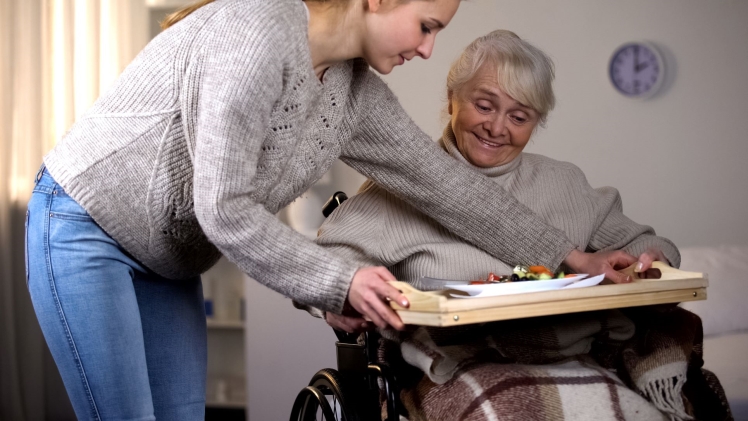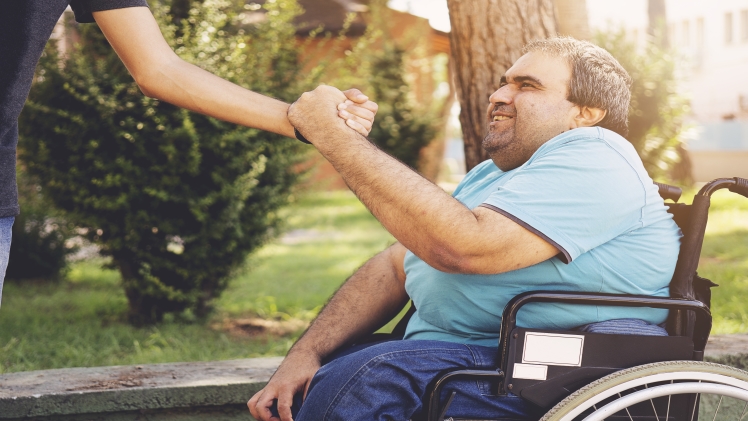Caring for people with disabilities is never easy. But it can be a rewarding experience, especially if you watch them grow, achieve new milestones, and learn on their own phase.
However, it’s crucial to bear in mind that you don’t need to get through the rough patches alone. For instance, you can look for support groups or work with a trusted partner like Senses Australia and other similar companies for the disability services you need.
Whether you turn to a friend, a healthcare professional, or another family member, there are various resources available to help you care for people with disabilities. Below are some of the care tips you may also consider:
1. Educate Yourself
Not all disabilities are the same. Some may have a different health condition than others. For this reason, make sure to gather as much information regarding the condition or diagnosis of your loved one or the disabled patient. To do this, meet with their specialists and health advisors to understand their current health condition and know what to expect.
It’s also a good idea to read, research, and take notes so that you’ll have references later on. The Internet can give you a massive amount of information but choose trusted and verified sources. Becoming well-informed will help you understand the challenges better and make more knowledgeable decisions, particularly when it comes to a healthy diet plan.
2. Look For Support Sources
There are some support sources available for people with disabilities to live successfully. Most families who have family members with special needs are used to doing it all. Often, disabled children require more support than a household can’t provide including working with case managers and managing medical conditions.
When taking care of people with disabilities, you can rely on several resources, such as:
- Home care professional support;
- Community transition programs and day programs; and
- Vocational rehabilitation.
Opportunities and support may differ based on where you reside. Think of the support that your loved one or disabled patient can benefit from.
If you think they need professional caregivers, don’t hesitate to invest in them. Most caregivers can help with complex and simple tasks including doing housework, meal preparation, bathing and hygiene, and more. With the right support, you can be assured that you’ll provide proper care to your disabled loved ones.
3. Avoid Assumptions And Biases As Much As Possible
Assumptions and biases can compromise the care you provide to disabled people in various ways. For instance, when patients with autism have an ankle injury, the physician might decide to speak to their family members only, presuming they can’t participate in their own care.
Some physicians might not perform pelvic exams on patients in a wheelchair, thinking that they can’t be sexually active or their physical mobility is limited. So, if you want to care for disabled people effectively, you must try not to assume and focus on what they really need to help them maintain a healthy and happy life.

4. Be An Advocate
People with disabilities will require advocates to ensure that they’ll get the best support, service, care, and education they need. Keep the documents of their medical history current and up-to-date so that they get the best medical attention and care they deserve.
Additionally, be a healthcare advocate for yourself so others will be aware of your unique situation when taking care of people with disabilities. As you show your situation with others, they may show more empathy to people with disabilities and to their caregivers.
5. Speak Clearly And Listen Carefully
If you’re taking care of people with a developmental disability and other cognitive problems, use simple words, concrete concepts, and clear sentences. Gauge the complexity, vocabulary, and pace of your speech to match theirs.
Unless you’re well-informed, let them make their own decisions and allow people with speech impairments to finish their sentences. Never interrupt them while they’re talking.
6. Celebrate Independence And Autonomy
Everybody wants to live life to the fullest and be independent as well. Adults with developmental and intellectual disabilities are still considered adults. It means they have to be in charge of their lives, making things tricky when caring for people with disabilities.
A good solution for that is to celebrate independence and autonomy with people with disabilities. You can do that by focusing on their skills and strengths. If possible, work with them to determine the ways to support them to grow. You can also encourage them to try a coaching program and support them in whatever they do as long as they’re happy.
Conclusion
The care you provide to people with disabilities allows them to remain in their homes and maintain a sense of independence. So, make sure to keep the above tips in mind to improve the quality of life of the disabled and enable them to experience life to the fullest as they grow old. If you think you can’t do it alone, you can always consider a disability service provider nearby and let professionals help you.

